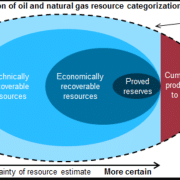A group of U.S. oil and gas producers is upping the pressure on House Speaker Mike Johnson. It is for him to push through a major permitting reform bill. They are stressing in a letter Wednesday the urgency for the chamber to move swiftly on approving the legislation. They see this as crucial for attracting new investments in domestic oil and gas projects. It will bolster national energy security and breathe new life into other long-stalled energy infrastructure projects.
The letter was by a coalition of U.S. oil and gas groups who represent 80% of domestic fossil fuel production. They stressed the need for House Republicans to swiftly and “immediately” pass the Energy Permitting Reform Act. It is the 2024 bill by Sens. Joe Manchin, I-W.Va., and John Barrasso, R-Wyo. They describe that legislation as crucial to helping expedite actions for producers under the second Trump administration.
Comprehensive Permit
“This bill is merely the first step towards comprehensive permitting reform in this country. We believe that passing the package now, at the end of the 118th, and then earnestly advancing additional National Environmental Policy Act reforms such as those being drafted by Chairman Westerman in the Natural Resources Committee, will ensure that America can get back on track as quickly as possible,” the letter said.
Pressure on Johnson and House Republicans has mounted in recent days as lawmakers prepare for a final sprint before the end of the 118th session of Congress. Some have suggested the bill’s best chances of passage are by paring it with NEPA reform — likely efforts championed by House Natural Resources Committee Chairman Bruce Westerman, R-Ark., which could earn the permitting reform bill more buy-in from House Republicans.
Click here to read the full article
Source: Fox News
—
Do you have any questions or thoughts about the topic US oil and gas producers? Feel free to contact us here or leave a comment below



